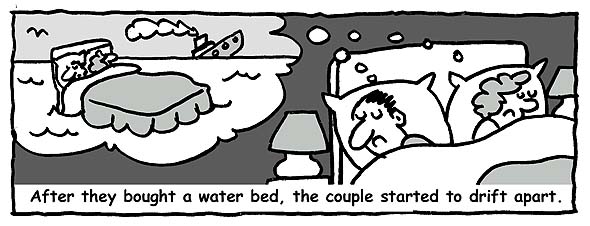
English is full of words that are difficult to pronounce, including ones that come up in day to day conversation.
Here is a little challenge for you to practise the pronunciation of some of these words. First, match the word to the correct sentence and then practise saying it out loud. Use the links to dictionary.com to help you with the pronunciation of each word. Let me know if there are any other words you have difficulty with!
Lesson by Caroline
Weddings are wonderful events and I'm really looking forward to my cousins wedding in October! I'm particularly excited about the food, which sounds amazing. There is lots of vocabulary related to marriage and weddings and here are some of the most common words. Read the paragraph below to see the vocabulary in context, then try and match the words to their meanings. Are any of you getting married soon? Or are you already married? Tell us about your big day!
Lesson by Caroline
Here's the second lesson in our A to Z of nouns (part one is here). Quite a few of these are abstract nouns. Can you remember what an abstract noun is? Abstract nouns are nouns you cannot see, hear, smell, taste or feel. e.g. kindness is an abstract noun.
Read through the sentences and try to decide which noun fits the gap. Can you think of any other nouns beginning with these letters?
Today's Intermediate level lesson is by Ian who teaches at our English school in Cape Town. When we want to describe the quantity of something (how many things there are), we use certain quantifiers depending on whether the object being describe is a countable noun or an uncountable noun.
We use quantifiers when we don't need to give the exact amount.
Some of you may be studying at our English school in Cape Town, and I'm sure you've become fascinated by the country's history.
Quantity nouns are the particular sets of words, such as phrases or terms, that you use to tell the quantities of certain things
Example: "Do you want a bottle of water?"
Of course, some quantity nouns have precise definitions and can only be used to tell the quantities of certain countable and uncountable nouns. Some of the special exceptions are:
In everyday business and social situations, it is necessary to ask and answer questions. When participating in a conversation we need to know what information is being discussed in order to ask appropriate questions using the correct 'question words' and to provide correctly structured responses.
Using the prompts to guide you, write a suitable response by using a conditional.
Start your sentences with if.
1. "I'm looking for a new red dress."
"If I / see one, I / let / you know."
2. "I left my wallet at home.
"If I / have / some money, I / buy something to eat."

Let's take a look at the verb drift and the phrasal verb drift apart:
Drift (verb) - When something is carried by currents of water (or air) it drifts. The water moves it, usually slowly:
"Didn't you notice that the boat was starting to drift out to sea?"